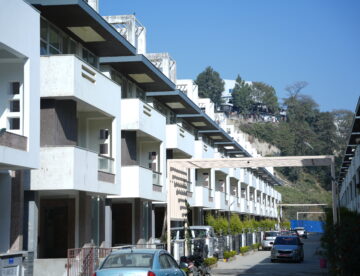Transparency has become a cornerstone for trust in the real estate industry, and Nepal is no exception. With property investments involving significant financial commitments, buyers and investors demand openness and accountability. Over recent years, Nepali real estate developers have adopted several measures to address transparency concerns, making the market more credible and appealing. Let’s dive into how these efforts are reshaping the industry.
Why Transparency Matters in Real Estate
Transparency in real estate ensures that buyers and investors can make informed decisions without fear of misinformation or hidden costs. It builds trust between developers and clients, minimizes disputes, and attracts more investments. In Nepal, where the real estate market has seen unprecedented growth, improving transparency has become a priority to sustain long-term development.
Key Steps Taken by Developers to Improve Transparency
1. Detailed Project Documentation
Modern real estate developers in Nepal now provide comprehensive project documents, including floor plans, building specifications, and legal clearances.
- Benefits: Buyers gain clarity on what they are purchasing and avoid unpleasant surprises.
- Example: Projects like Karyabinayak Homes have set benchmarks by offering detailed project blueprints and real-time updates.
2. Leveraging Technology for Transparency
Developers are utilizing digital platforms to share project details, progress updates, and customer testimonials.
- Online Portals: Websites and apps now host critical information such as pricing, available units, and project timelines.
- Virtual Tours: These allow buyers to explore properties remotely, enhancing convenience and trust.
3. Clear Pricing Structures
Gone are the days of vague pricing and hidden charges. Developers are now embracing transparent pricing models.
- Upfront Costs: They clearly mention costs for registration, taxes, and additional amenities.
- Discounts and Offers: Limited-time offers and discounts are openly communicated without gimmicks.
4. Third-Party Audits and Certifications
Reputed developers engage third-party auditors to verify project compliance with regulations.
- Compliance Certificates: These certify adherence to safety standards and environmental guidelines.
- Why It Matters: Independent audits reassure buyers about the legitimacy of a project.
5. Customer-Centric Communication
Developers have improved their communication channels to address customer queries and concerns effectively.
- Dedicated Helplines: Many developers now have customer service teams to provide timely assistance.
- Transparency in Agreements: Contracts now highlight all terms and conditions, reducing ambiguity.
Impact of Transparency on Nepal’s Real Estate Market
– Increased Buyer Confidence
Transparency has encouraged hesitant buyers to explore real estate investments.
– Enhanced Market Credibility
The adoption of transparent practices has improved Nepal’s standing in the global real estate market.
– Long-Term Growth
Developers are now focusing on sustainable projects, ensuring ethical practices that benefit all stakeholders.
Challenges Developers Face
While significant progress has been made, challenges like outdated laws, bureaucratic hurdles, and a lack of digital literacy among buyers still need addressing. Collaboration between government bodies and developers is crucial to overcoming these barriers.
Conclusion
Real estate developers in Nepal are setting new standards for transparency, paving the way for a more robust and trustworthy market. By embracing technology, clear communication, and third-party verifications, they are building confidence among buyers and investors.
Recommended reading: Resale Property vs. New Development: Which is Better for Buyers in Nepal?






